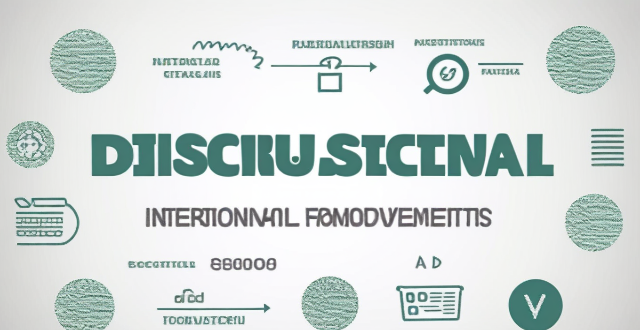The text discusses the crucial role of international aid and foreign investments in promoting economic growth in low-income countries. It highlights how these two factors contribute to development by providing financial resources, technical expertise, and market access. The text also emphasizes the need for effective and transparent use of these resources to maximize their impact on sustainable economic growth.

The Role of International Aid and Foreign Investments in the Economic Growth of Low-Income Countries
International aid and foreign investments play a crucial role in the economic growth of low-income countries. These two factors provide financial resources, technical expertise, and market access that can help these countries to develop their economies and improve the living standards of their people. In this answer, we will discuss the different ways in which international aid and foreign investments contribute to the economic growth of low-income countries.
International Aid
Providing Financial Resources
One of the most significant contributions of international aid to low-income countries is the provision of financial resources. These funds can be used for various purposes, such as infrastructure development, health care, education, and poverty alleviation programs. By providing financial support, international aid helps to fill the gap between the limited domestic resources available in these countries and the required investment for sustainable economic growth.
Transferring Technical Expertise
Another important role of international aid is the transfer of technical expertise from developed countries to low-income ones. This includes knowledge on best practices in agriculture, healthcare, education, and other sectors that are critical for economic development. Through training programs, workshops, and other capacity building activities, international aid helps to build the human capital needed for sustainable economic growth.
Promoting Good Governance
International aid also plays a crucial role in promoting good governance in low-income countries. By providing conditional grants and loans, donors can influence policy decisions and encourage reforms that promote transparency, accountability, and efficiency in government operations. This, in turn, creates an environment conducive to private sector development and foreign investment.
Foreign Investments
Generating Employment Opportunities
Foreign investments create job opportunities in low-income countries by setting up factories, offices, and other business operations. This not only provides employment for local workers but also helps to reduce poverty and improve living standards. Moreover, foreign companies often offer better working conditions and higher wages than local firms, which further enhances the welfare of the workforce.
Enhancing Technology Transfer
Foreign investments also facilitate technology transfer from developed countries to low-income ones. This includes the introduction of new production techniques, management systems, and marketing strategies that can help local firms to become more competitive and innovative. By adopting advanced technologies and business practices, low-income countries can enhance their productivity and export potential, leading to increased economic growth.
Providing Access to Global Markets
Finally, foreign investments provide low-income countries with access to global markets. Multinational corporations often have well-established distribution networks and brand recognition that can help local firms to enter new markets and expand their customer base. Additionally, foreign investors may bring in capital, managerial skills, and other resources that can help local firms to upgrade their products and services, making them more attractive to international buyers.
Conclusion
In conclusion, international aid and foreign investments play a vital role in the economic growth of low-income countries by providing financial resources, technical expertise, and market access. By leveraging these factors, low-income countries can develop their economies and improve the living standards of their people. However, it is essential to ensure that these resources are used effectively and transparently to maximize their impact on sustainable economic growth.